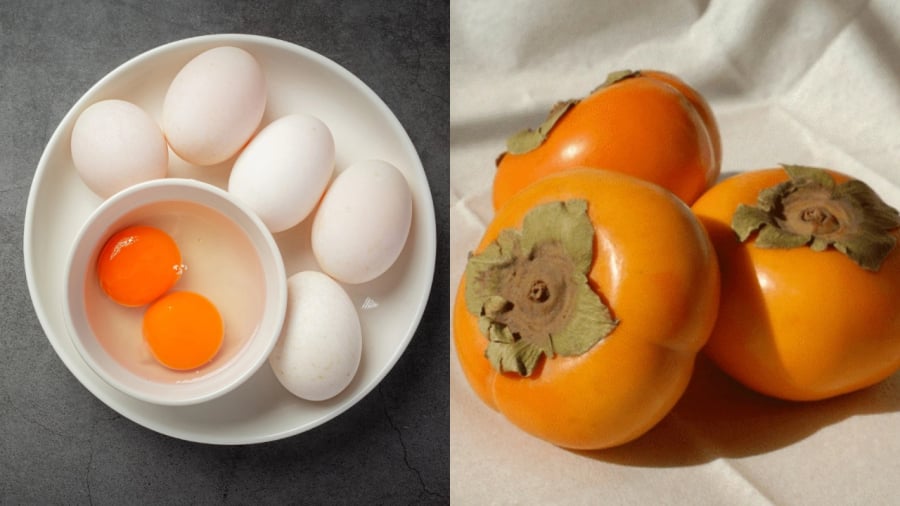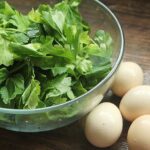Eggs are often hailed as a “superfood” for their high nutritional value, affordability, and versatility in the kitchen. They can be combined with a myriad of ingredients to create nutritious and delicious meals. However, it’s important to note that there are some foods that don’t pair well with eggs and may reduce their nutritional value or even have negative effects on your body.
6 Foods That Don’t Pair Well with Eggs
- Persimmon
According to the Health and Life newspaper, ThS. BS Le Trinh Thuy Tien, a member of the Vietnam Clinical Nutrition Association, persimmons contain high levels of tannin, especially in their peel. Consuming eggs and persimmons together or in close succession can cause the tannin to bind with the protein and minerals in eggs, forming indigestible compounds. These compounds can remain in the digestive system, leading to abdominal pain and acute intestinal inflammation.

- Fish
Both eggs and fish are nutrient-dense foods, but they shouldn’t be combined. Research suggests that eggs contain avidin, which can neutralize vitamin B7 found in fish, especially oily fish.
- Pork Brain
While pork brain fried with eggs might be a tasty treat for some, this combination doesn’t offer much in terms of health benefits. It can lead to increased cholesterol levels in the blood, and it’s especially detrimental for individuals with high blood pressure. Even healthy individuals should avoid overindulging in this dish.
- Potatoes
Eggs and potatoes are both nutritious on their own, but when combined, their nutritional value diminishes. Certain minerals in potatoes can interfere with the absorption of calcium and iron from eggs.
Moreover, this combination can lead to digestive issues and cause discomfort.
- Soy Milk
Soy milk and eggs don’t make a good pair. Studies indicate that soy milk contains trypsin, which inhibits the body’s digestive and protein absorption processes. When consumed together, trypsin impedes protein breakdown, preventing the body from absorbing this crucial nutrient.
- Tea
Drinking tea after a meal is a common practice, but it’s not beneficial, especially if the tea is strong. While tea can help freshen your mouth, the tannic acid in tea combines with the protein in eggs, forming a compound that is difficult to digest and slows intestinal motility.
Additional Notes on Egg Consumption
- Avoid Eating Raw Eggs
Some people believe that eating raw eggs maximizes their nutritional benefits, but this is not true. Raw eggs may contain Salmonella bacteria, which can cause dangerous food poisoning.
- How Many Eggs Should You Eat in One Sitting?
For infants, the recommended amount varies with age: 6-7 months – 1/2 egg yolk per meal; 8-9 months – 1 whole egg yolk or 4 quail eggs per meal; 10-12 months – 1 whole egg (including the white and yolk). For toddlers (1-2 years old), the recommendation is 3-4 eggs per week.
For adults, it’s generally considered safe to consume around 3 chicken eggs per week.
5 Energy-Boosting Food and Drink Alternatives to Coffee: Beat the Afternoon Slump!
For those looking to boost their alertness, coffee is often the go-to beverage of choice. But, if you’re keen to steer clear of caffeine dependence or are seeking a healthier energy source, there are plenty of easily accessible alternatives. Discover five effective and nourishing options that will energize you in a natural and sustainable way.





































